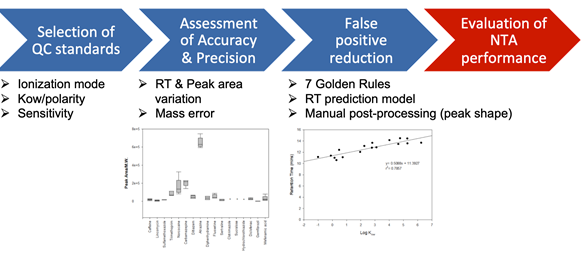Water is an essential resource for our health and survival, yet poor water quality is having negative impacts on people daily. In urban waterways, large amounts of contamination from various sources can be found, from industrial discharge, residential and commercial wastewater, transportation, trash, and agricultural runoff. In addition to these sources of pollution, there are still contaminants that are “unknown” in these urban waters, leading to public and environmental health hazards.

Graduate fellow Brian Ng, with the NSF CREST Center for Aquatic Chemistry and Environment, is analyzing these “unknowns” by using a combination of high-resolution mass spectrometry (HRMS) and identification software. Through a combination of existing databases and software, Ng is identifying known contaminants, suspect compounds, and unknown chemicals of potential concern. This work can shed light on the water quality of different water bodies and eventually lead to the creation of a unique “fingerprint” for each, which can then be used to track water quality and identify its point of impact. Another part of this work will be the remediation of the identified contaminants using a simple and inexpensive polydimethylsiloxane (PDMS) sponge that can be made from low cost, commercially available reagents and demonstrate their potential application in the removal process of organic contaminants in polluted waters.
The NSF CREST Center for Aquatic Chemistry and Environment is housed within the Institute of Environment, a Preeminent Program at Florida International University.
